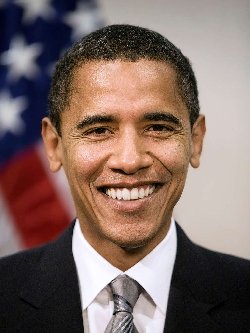- Did Watergate teach us anything?
 August 9th represents the 40th anniversary of the resignation of President Richard Nixon. It seems like yesterday. Nixon was under intense pressure to resign for his involvement in the Watergate scandal. For those of you too young to remember, 1972 was a presidential election year and members of the Committee for the Re-Election of the President (CRP) burglarized the Democratic National Committee's headquarters at the Watergate Complex in Washington, D.C. with the intent of searching through papers for intelligence and bugging the offices with listening devices. A security guard noticed something unusual and called the police who captured the burglars. Nixon's role was primarily concerned with the cover up of the break-in. The incident attracted international attention from the press and the country wallowed in outrage and despair for two years.
August 9th represents the 40th anniversary of the resignation of President Richard Nixon. It seems like yesterday. Nixon was under intense pressure to resign for his involvement in the Watergate scandal. For those of you too young to remember, 1972 was a presidential election year and members of the Committee for the Re-Election of the President (CRP) burglarized the Democratic National Committee's headquarters at the Watergate Complex in Washington, D.C. with the intent of searching through papers for intelligence and bugging the offices with listening devices. A security guard noticed something unusual and called the police who captured the burglars. Nixon's role was primarily concerned with the cover up of the break-in. The incident attracted international attention from the press and the country wallowed in outrage and despair for two years.
Former Sen. Howard Baker of Tennessee, who just recently passed away, succinctly framed the issue at hand by asking, "What did the president know and when did he know it?" This brought up the subject of tape recordings of conversations in Nixon's White House. The president made the recordings for historical purposes, but now they became the center of attention for what they might contain. At first, the president invoked "executive privilege" over the tapes, but the US Supreme Court overruled and ordered him to turn the tapes over to government investigators. The tapes ultimately revealed the president's involvement in the cover-up. However, there was a gap in one of the tapes. Rose Mary Woods, Nixon's long-time secretary, claimed responsibility for inadvertently erasing up to five minutes in a key audio tape (June 20, 1972).
At the time, both chambers of Congress were controlled by the Democrats. As it became obvious the House was going to file articles of impeachment based on obstruction of justice, the president received a delegation of senior GOP Congressional leaders in the Oval Office on August 7th, including Senator Barry Goldwater. The group told the president his position was untenable and impeachment was likely. Instead of prolonging the problem, and putting the country through a messy impeachment trial, Nixon resigned, thereby elevating Gerald Ford to president.
Three things come to mind when I think back to this affair:
First, Richard Nixon resigned as opposed to burdening the country with more scandal. Bill Clinton did not. Clinton's scandal was just as messy and embarrassing, maybe more so. Nonetheless, he suffered the embarrassment of impeachment, but escaped prosecution in the Senate trial. American politics hasn't been quite the same since then.
Second, Rose Mary Wood was accused of deleting five minutes from Nixon's Watergate tapes which was considered alarming at the time and proof of Nixon's involvement in the cover-up. Recently, IRS Commissioner John Koskinen revealed two years worth of e-mails of former IRS Director Lois Lerner and six others were lost allegedly due to malfunctioning computer backup equipment. Lerner was key to the IRS scandal which targeted Tea Party groups for auditing by the IRS. The deletion of the e-mails was considered too "coincidental" for Congressional investigators. Suddenly, Wood's five minute gap seems miniscule when compared to the loss of thousands of e-mails.
Third, the press went after Nixon viciously in 1974. They had despised him since he was vice president under Eisenhower in the 1950's (see "Checkers speech"). Remarkably, the mainstream media of today shows little interest in the IRS scandal, just the antithesis of the Watergate investigation. One can only ask why? Is it possible the press favors one political party over another? Hmm...
Finally, when I traveled overseas on business years ago, I had several clients ask me about Nixon and Watergate. They thought Nixon was a good president and were stunned we had turned him out for something they considered trivial and insignificant. Whether I was in the UK, Norway, Spain, Brazil, Japan or wherever, they all thought Nixon should have taken the tapes and burned them on the White House lawn.
I wonder what their take would be today on such things as the IRS and VA scandals, Benghazi, Fast & Furious, etc. Knowing their unfavorable disposition about Mr. Obama, I believe I know what their answer would be.
Keep the Faith!
Note: All trademarks both marked and unmarked belong to their respective companies.
 Tim Bryce is a writer and the Managing Director of M&JB Investment Company (M&JB) of Palm Harbor, Florida and has over 30 years of experience in the management consulting field. He can be reached at timb001@phmainstreet.com
Tim Bryce is a writer and the Managing Director of M&JB Investment Company (M&JB) of Palm Harbor, Florida and has over 30 years of experience in the management consulting field. He can be reached at timb001@phmainstreet.com
For Tim's columns, see:
timbryce.com
Like the article? TELL A FRIEND.
Copyright © 2014 by Tim Bryce. All rights reserved.
NEXT UP: THE WHITE LINE - What does this parable tell us about ourselves?
LAST TIME: SENATORS AND THE 17TH AMENDMENT
- No Virginia, senators were not always elected "by the people."
Listen to Tim on WJTN-AM (News Talk 1240) "The Town Square" with host John Siggins (Mon, Wed, Fri, 12:30-3:00pm Eastern), and KIT-AM 1280 in Yakima, Washington
"The Morning News" with hosts Dave Ettl & Lance Tormey (weekdays. 6:00-9:00am Pacific). Or tune-in to Tim's channel on YouTube.
 Most Americans today are unaware U.S. Senators were not always elected by the people. According to the articles of the Constitution, senators were elected by state legislators, not the people or governor. This all changed with the ratification of the
Most Americans today are unaware U.S. Senators were not always elected by the people. According to the articles of the Constitution, senators were elected by state legislators, not the people or governor. This all changed with the ratification of the  I recently took a short trip to North Carolina to do a little fly-fishing with an old friend. It was a brief trip and we only had modest success, but it was a wonderful getaway. The mountains were beautiful, the air smelled delicious, and the streams were cold and clear. It was just the tonic I needed.
I recently took a short trip to North Carolina to do a little fly-fishing with an old friend. It was a brief trip and we only had modest success, but it was a wonderful getaway. The mountains were beautiful, the air smelled delicious, and the streams were cold and clear. It was just the tonic I needed.
 President Obama's speeches have become rather routine and predictable. They remind me of a jukebox, a device from a bygone era, whereby you put in a quarter, press a numbered button, and hear your selected tune. Smart phones, MP3 players and iPods have since replaced the jukebox, but you get the idea.
President Obama's speeches have become rather routine and predictable. They remind me of a jukebox, a device from a bygone era, whereby you put in a quarter, press a numbered button, and hear your selected tune. Smart phones, MP3 players and iPods have since replaced the jukebox, but you get the idea.
 I recently had the opportunity to visit a local elementary school where I attended their assembly for a presentation. I've known the school and principal for a long time. The school is modern in design and impressive to visit. Students there should be proud of it.
I recently had the opportunity to visit a local elementary school where I attended their assembly for a presentation. I've known the school and principal for a long time. The school is modern in design and impressive to visit. Students there should be proud of it.
 Do you remember the Dr. Seuss classic, "Yertle the Turtle"? In it, Yertle was the king of the turtles in a pond who demanded his subjects elevate him higher than the moon. The story was intended to make a mockery of ultimate power. There are still a lot of Yertles out there living separately in small ponds and I'm sure we all know a few of them. You can find them in companies, nonprofit groups, schools, even in our neighborhoods. They may not have been officially anointed king, but they very much try to play the role. It is what we commonly refer to as the "Big Fish in a Small Pond" phenomenon.
Do you remember the Dr. Seuss classic, "Yertle the Turtle"? In it, Yertle was the king of the turtles in a pond who demanded his subjects elevate him higher than the moon. The story was intended to make a mockery of ultimate power. There are still a lot of Yertles out there living separately in small ponds and I'm sure we all know a few of them. You can find them in companies, nonprofit groups, schools, even in our neighborhoods. They may not have been officially anointed king, but they very much try to play the role. It is what we commonly refer to as the "Big Fish in a Small Pond" phenomenon.

 I have seen a lot of Information Systems in my lifetime. Most are rather simple if you take the time to study the problem, and create the
I have seen a lot of Information Systems in my lifetime. Most are rather simple if you take the time to study the problem, and create the  A few months ago I noted changes emerging in our culture, primarily by youth who appear to be gravitating towards extreme sports (see
A few months ago I noted changes emerging in our culture, primarily by youth who appear to be gravitating towards extreme sports (see  When we think of a bureaucracy, we tend to associate it with frustration. A mental image of excessive paperwork and rules (aka "red tape") comes to mind, along with overbearing peons emboldened with a sense of power over the people they are charged to serve. Their inclination to create work as opposed to solving problems stifles business as opposed to running interference for them. It tests our tolerance, but what can be done about it?
When we think of a bureaucracy, we tend to associate it with frustration. A mental image of excessive paperwork and rules (aka "red tape") comes to mind, along with overbearing peons emboldened with a sense of power over the people they are charged to serve. Their inclination to create work as opposed to solving problems stifles business as opposed to running interference for them. It tests our tolerance, but what can be done about it?
 Despite America's fears of Muslim terrorists in the Middle East, we are witnessing the birth of a new nation which is a rare occurrence. Fostered by ISIS, the Islamic State in Iraq and Syria, it will undoubtedly be a Muslim country consisting of fanatical extremists who will claim land within Iraq and Syria, and possibly beyond. They have long range plans to seize land in Lebanon, Israel, Palestine, Jordan, Cyprus, and Southern Turkey. Although they will be rebuffed by these countries, they will need to get their house in order and settle their country first.
Despite America's fears of Muslim terrorists in the Middle East, we are witnessing the birth of a new nation which is a rare occurrence. Fostered by ISIS, the Islamic State in Iraq and Syria, it will undoubtedly be a Muslim country consisting of fanatical extremists who will claim land within Iraq and Syria, and possibly beyond. They have long range plans to seize land in Lebanon, Israel, Palestine, Jordan, Cyprus, and Southern Turkey. Although they will be rebuffed by these countries, they will need to get their house in order and settle their country first.
 In a couple of days we will be celebrating Independence Day in America. Sure the patriotic symbolism is meaningful, but to young men it means just one thing, fireworks. Over the years, I have blown up my share of firecrackers, Roman candles, cherry bombs, M-80's, rockets, etc. I consider it a sort of rite of passage. For youth, stopping at a fireworks store along I-75 in Tennessee is like making a religious pilgrimage.
In a couple of days we will be celebrating Independence Day in America. Sure the patriotic symbolism is meaningful, but to young men it means just one thing, fireworks. Over the years, I have blown up my share of firecrackers, Roman candles, cherry bombs, M-80's, rockets, etc. I consider it a sort of rite of passage. For youth, stopping at a fireworks store along I-75 in Tennessee is like making a religious pilgrimage.